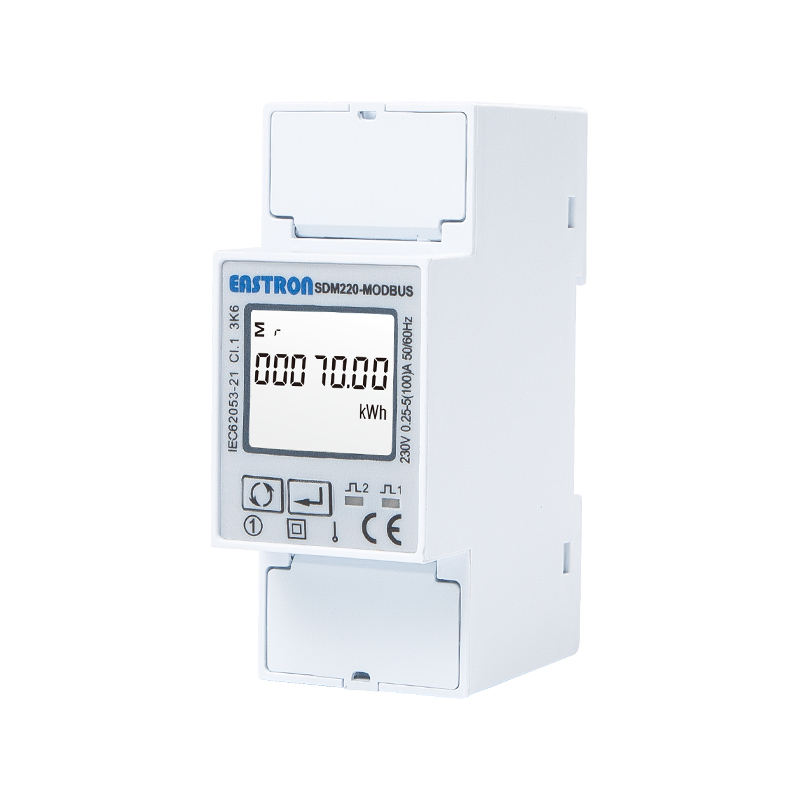Product Consultation
Your email address will not be published. Required fields are marked *
Content
Energy meters play a crucial role in measuring energy consumption and helping both residential and commercial users track their usage. Accurate readings are vital for efficient energy management, as they directly impact billing, energy conservation, and system performance. Inaccurate readings can lead to overcharging, undercharging, and hinder efforts to reduce energy consumption. This article explores the factors that affect energy meter accuracy and provides tips on how to ensure your meter is working correctly.
The accuracy of energy meters can be influenced by environmental conditions such as temperature, humidity, and electromagnetic interference. High or low temperatures can cause expansion or contraction of the internal components, affecting measurement precision. Similarly, high humidity can lead to corrosion or condensation inside the meter, while electromagnetic fields from nearby devices can interfere with the meter’s sensors. Ensuring that energy meters are installed in stable environments is essential for maintaining accurate readings.
Different types of energy meters—mechanical, electronic, and smart meters—vary in terms of accuracy. Mechanical meters, often used in older installations, rely on moving parts and are more prone to wear and tear, which can impact their accuracy over time. Electronic meters and smart meters, on the other hand, use digital sensors to measure consumption more precisely and can offer real-time data. While electronic and smart meters generally offer better accuracy, they still require periodic calibration and maintenance to ensure their reliability.
Meter calibration is a critical factor in ensuring accurate readings. Over time, energy meters can drift or become less accurate due to wear, environmental factors, or component degradation. Periodic calibration ensures that the meter’s readings remain accurate and reflect true energy consumption. Calibration involves comparing the meter’s readings to a known standard or reference and making adjustments if necessary. Depending on the type of meter and local regulations, calibration may be required every few years or upon installation.
The accuracy of energy meters can also be affected by the quality of the electrical power supply. Variations in voltage, frequency, and power factor can distort readings. For example, if a power supply is unstable or if there are frequent power surges, energy meters might record more consumption than what is actually used. High or low power factor due to inefficient appliances or heavy electrical loads can also impact meter accuracy. Ensuring that electrical systems are optimized for stable and consistent power flow can help improve meter accuracy.
Accurate energy meter readings are critical for ensuring fair billing. Overestimating energy usage due to faulty readings can lead to higher utility bills, while underestimation can result in discrepancies or even financial losses for utility providers. By ensuring that meters are calibrated and functioning correctly, both consumers and utility providers can ensure that billing is based on actual usage rather than inaccurate estimates.
Accurate energy meters allow homeowners and businesses to track their energy consumption accurately and make informed decisions to optimize usage. Without accurate data, it is difficult to identify areas for improvement or understand where energy is being wasted. Accurate readings enable users to implement strategies to reduce consumption, leading to lower energy bills and better energy efficiency. By addressing areas of high consumption and replacing inefficient equipment, users can significantly reduce their overall energy expenditure.
In many regions, energy meters are subject to strict regulatory standards to ensure they provide accurate readings for both consumers and energy providers. Inaccurate meters can lead to violations of these standards and cause legal issues for utility providers. Regular calibration and maintenance of energy meters help ensure compliance with industry regulations, preventing legal complications and maintaining the trust of customers.

Regular maintenance and inspection are key to ensuring that energy meters provide accurate readings over time. This includes checking for physical damage, ensuring proper installation, and calibrating the meter periodically. Utility companies often offer services to inspect and recalibrate meters, so homeowners should take advantage of these services to maintain accuracy.
Selecting a high-quality energy meter is essential for achieving accurate readings. Modern electronic and smart meters are generally more accurate than older mechanical meters. It is also important to choose a meter that is appropriate for the type of energy usage and environment. For instance, smart meters can provide real-time data and allow for remote monitoring, making them an excellent choice for homes or businesses that require detailed energy tracking.
Energy meter accuracy is essential for fair billing, energy efficiency, and compliance with regulations. By understanding the factors that impact meter accuracy and ensuring regular calibration and maintenance, homeowners and businesses can ensure reliable readings. Accurate energy data allows users to make informed decisions to reduce consumption, lower energy costs, and contribute to sustainability. In the long run, investing in accurate energy meters and maintaining their performance will lead to greater control over energy usage and improved financial savings.
Your email address will not be published. Required fields are marked *
We develop and produce high performance electricity meters, power analyzers, current sensors, communication modules and management systems. China Custom Smart Meters Manufacturers and Factory
Address:NO 52, Dongjin Road, Nanhu, Jiaxing, Zhejiang, China
Copyright @ Eastron Electronic Co., Ltd. All rights reserved Electricity Meters Manufacturers
